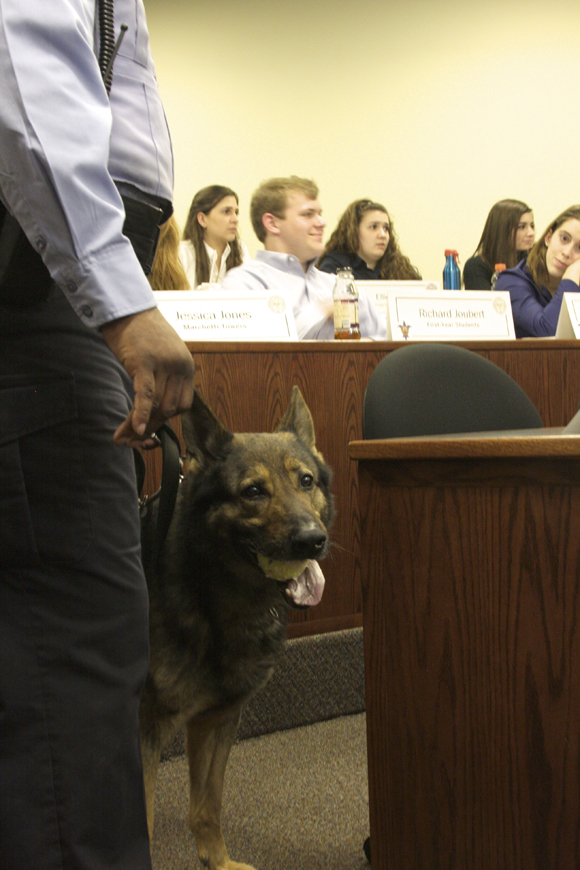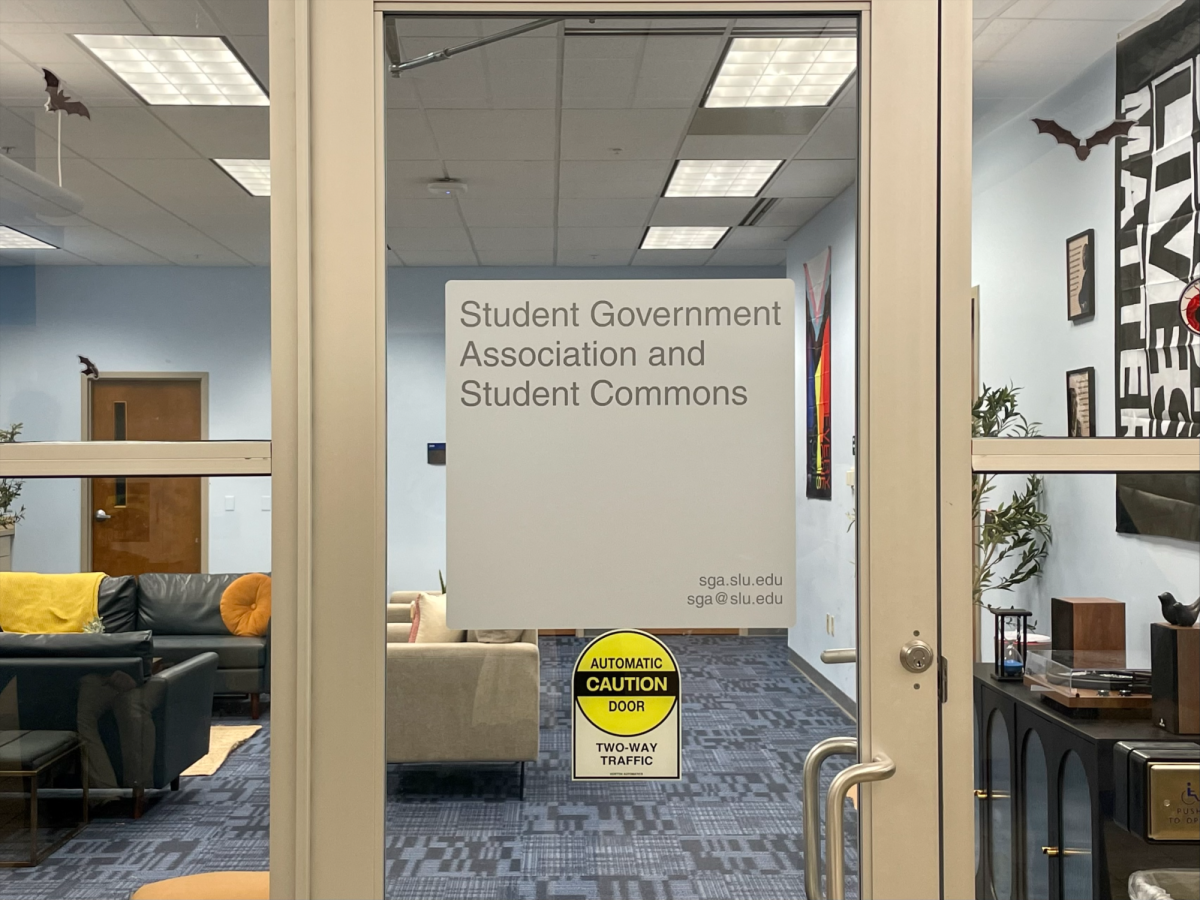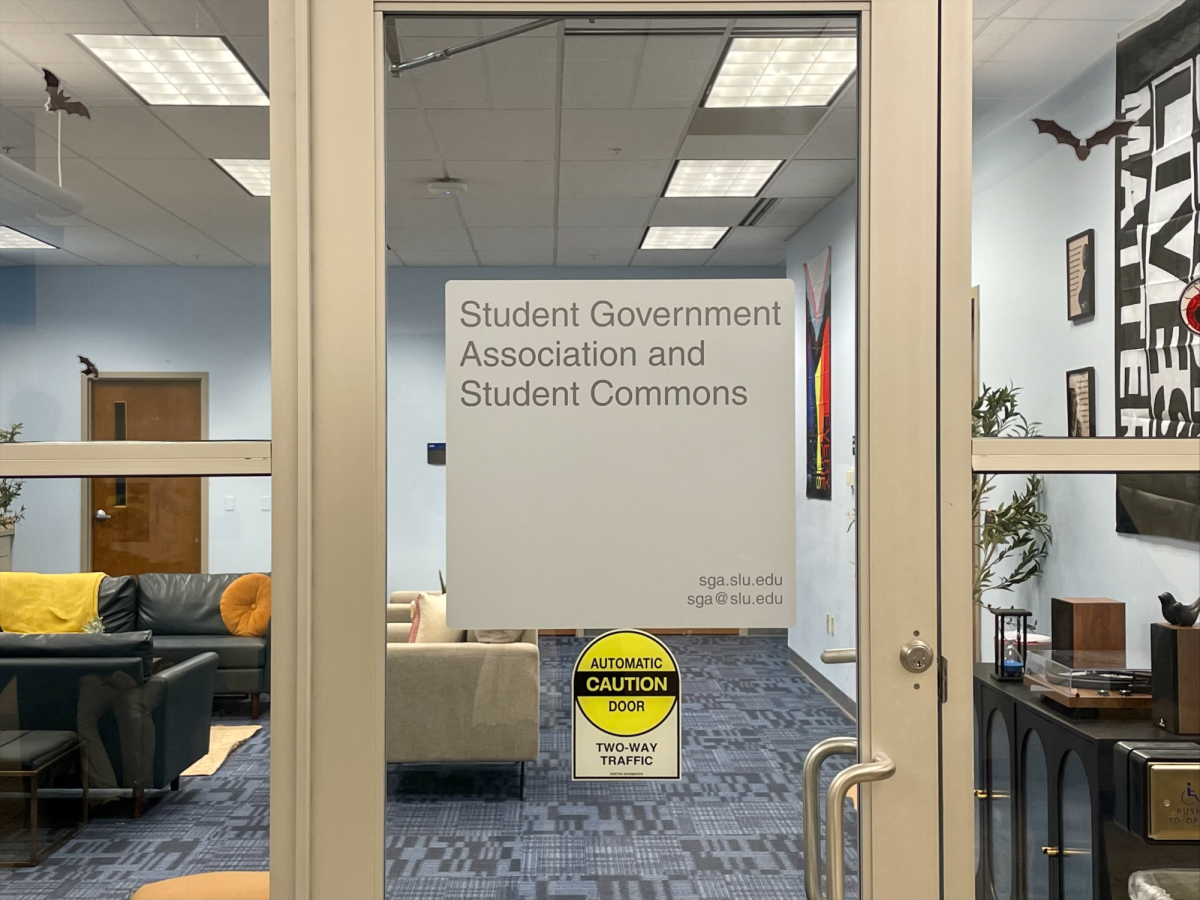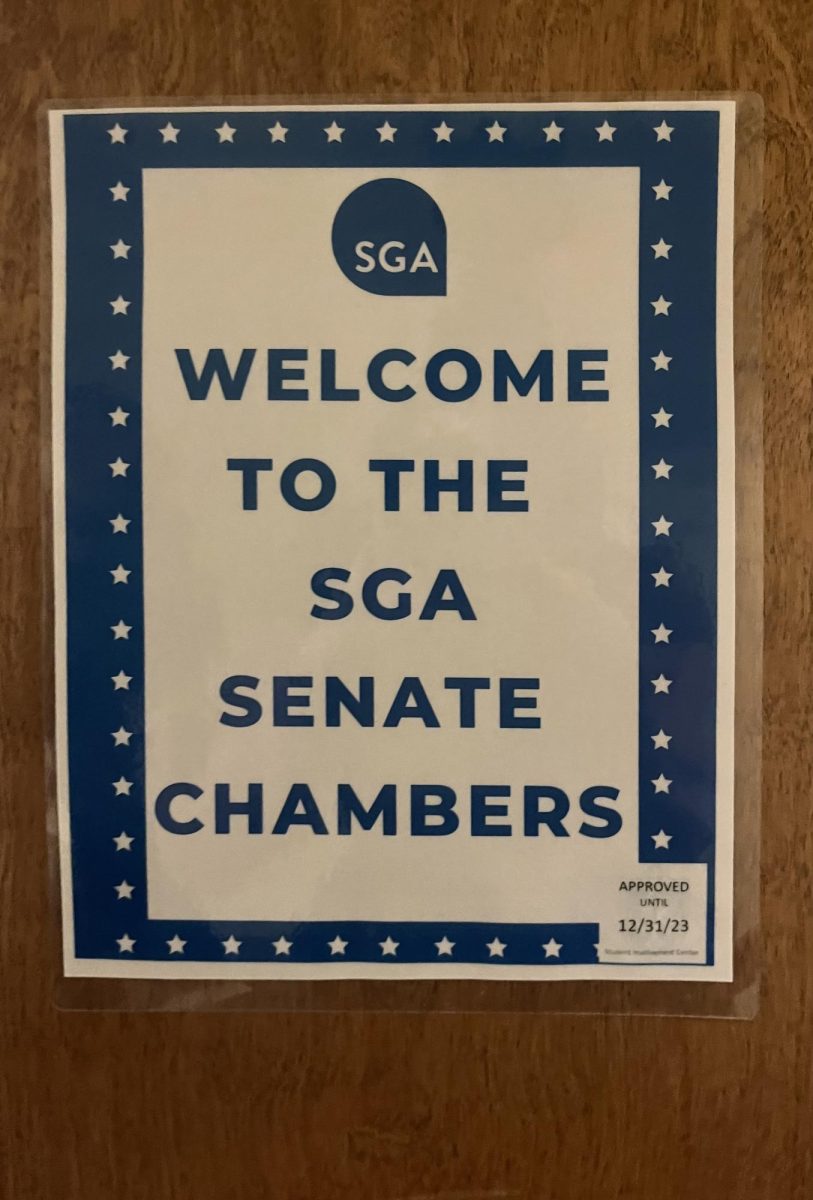This week’s Student Government Association meeting was ripe with questions and debate, despite there being only four business points on the agenda. The meeting began with a presentation from David Heimberger, interim assistant vice president and chief financial officer, and other administrators, addressing the future of the Saint Louis University budget. The presenters made a point that the numbers posted as projections for the fiscal year 2013 are mostly based on assumptions for the upcoming year.
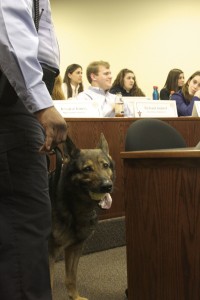
“The budget is based on economic concerns, so a fairly conservative budget was built,” Heimberger said.
The presentation looked at projected tuition revenue, the decision not to have salary increases and the issue of the University’s endowment for FY13. In the faculty senate meeting this past week, the decision to not increase salaries was a primary concern, Andrew Sova, graduate school senator, said. In the past, the average merit increase has been approximately 2.6 percent
When it was announced that 71 percent of the University budget was allocated to compensation, Sova asked if a breakdown of how that is divided among faculty, staff and administrators could be provided. Heimberger said that data is not currently available, but a breakdown could be provided as early as next week.
On the subject of the endowment, it was explained to senate that the endowment is primarily comprised of gifts to the University that are invested so that they could grow. The goal of the endowment is to provide an annual, predictable source of revenue; preserve the purchasing power of the original gifts; and support access to the debt markets. Some concern was raised that the University’s endowment could be used more effectively than it is now.
“When that much money is sitting some place, I don’t believe that people donating the money want it to just sit there and grow,” Sova said. “They want it to benefit the University.”
Sova proposed that the endowment could be used to increase the merit salaries of faculty.
The next order of business in senate was a bill announcing senate’s support for using drug sniffing dogs on campus in an effort to increase the Department of Public Safety and Emergency Preparedness’ effectiveness in preventing drug use on SLU’s campus. The discussion of the bill was prefaced by a presentation by Ken Hornack, the assistant director of field operations for DPSEP.
DPSEP brought with them a 5-year-old German Shepherd named Chief to demonstrate what was being proposed, making a point to add that the dog would only be used once or twice a semester and would only be used in hallways, not rooms. Hornack reported that there have been approximately 32 known cases of drug use on campus just this past year.
“It’s been more in the open this year,” Hornack said. “Mostly marijuana and not in large quantities.”
After a brief demonstration of the dog’s abilities, SGA debated the merits of using a drug-sniffing dog on campus. A major concern among senators was that there was no policy in place to define how the dog could work on campus and what it would mean for students caught with drugs on SLU’s campus.
“The ends don’t justify the means, and there is already a policy to allow Housing and Residence Life to conduct unannounced searches,” Law School Senator Myles McCabe said. “There is no policy for drug dog searches, and we are disrespecting student’s privacy. We know they will be walking the halls of the dorms at random, and I will not vote to subject the students to that.”
Academic Vice President Patrick Grillot proposed an amendment to the bill, which requested that the University draft a policy addressing the use of drug dogs on campus and that SGA be included in the conversation surrounding the creation of such a policy.
Grillot argued that having a policy would make it easier to provide solid answers about how the dogs would be used. Though the amendment was met with some opposition, the amendment passed. The amended bill failed, however, with 18 senators approving it and 28 voting against.
The meeting ended with the passing of the omnibus bills from last week and the tabling of an amendment to the association’s bylaws.




